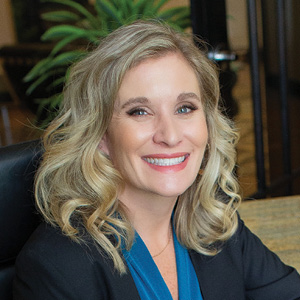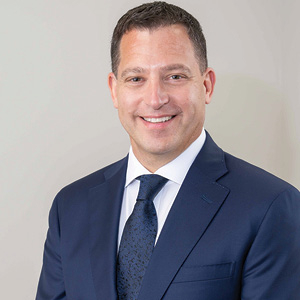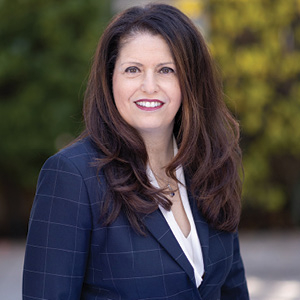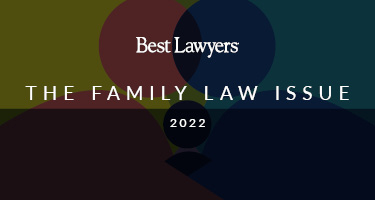On September 21, 2018, the Executive Council of the Family Law Section of the State Bar, past and present Family Law Judges, as well as experienced practitioners, gave 24 participants the opportunity to hone their skills in the Family Law Trial College. The suggestions, thoughts, and ideas that were discussed benefit any Arizona family law attorney, regardless of their years of experience. As moderator of the college, I am sharing some of those insights.
Know Your Judge
In an Arizona family law trial, there is an audience of just one, a judge and no jury. Gather as much information about your judge as possible. At minimum, carefully review the biography of the judge on the Maricopa Superior Court website or the resource available in your county. Google the judge. Gather information from colleagues who have appeared before this judge or who have information about his or her pre-judicial background and experience. Obtain and review FTRs of the judge presiding at a trial where both litigants are represented by lawyers.
Many of the judges have posted their “preferences” for trial related activity on the Maricopa Superior Court website. Use the Resolution Management Conference or Return Hearing as an opportunity to gather more information about the judge relating to trial. For example, some judges will allow leading questions during direct examination because of the time constraints imposed on the lawyers. Know if this judge ascribes to that practice before you begin your trial preparation.
Provide a Clear Roadmap
Your judge is not an encyclopedia of law or knowledge. In fact, in many cases your judge may know very little about family law during his or her first year on the family law bench. Lead the judge to a place they are comfortable going, with the result you are seeking to obtain. Always think “How can I help this judge?” The best opportunity is the Joint Pretrial Statement. File it on time. Do not provide a separate Joint Pretrial Statement unless your separate statement includes the reasons why a Joint Pretrial Statement was not provided. While not the best course, counsel can provide an abbreviated “Joint” Pretrial Statement and attach each of their separate Pretrial Statements.
State clearly and specifically what you want in the Joint Pretrial Statement. Summarize the significance of each witness, and if the witness is not a party, explain the witness’ relationship to the parties. Don’t merely include a list of your exhibits. You will know which exhibits are likely to draw an objection. In the Joint Pretrial Statement, discuss the objection and make a statement as to why the exhibit ought to be admitted.
Educate the judge in the Joint Pretrial Statement by including discussions of the relevant statutes and case law that support your position and the relief you are asking the court to grant to your client.
Exhibits Should Be Easy to Use
Most judges will request a bench book of the exhibits which are either delivered prior to trial or presented on the day of trial. In order for the judge to follow your presentation and adopt your reasoning, it is critical that the judge be able to read and understand your admitted exhibits during trial. At the trial conclusion and before they make their decision, the judge is going to take three things back to their chambers to review - a copy of the Joint Pretrial Statement, the exhibits, and their notes.
They will not admit voluminous exhibits into evidence, even when the Joint Pretrial Statement stipulates to the admission of the exhibits. First, the judge does not have the time to review hundreds of pages of documents and second, they do not want to create a record on appeal that includes information that he or she has not specifically reviewed in making their decision. Pare down the number of exhibits that you need the court to have in order to grant the relief that you are requesting.
When possible, summarize voluminous information. For example, there is rarely the need to have hundreds or thousands of pages of bank and credit card statements admitted into evidence. Summaries can be provided of deposits, withdrawals or specific transactions that you are questioning. Rule 1006 of the Arizona Rules of Evidence provides that if you have made all of the documents used in the preparation of the summary timely available to the opposing party or counsel prior to trial, those supporting documents do not have to be exhibits and do not even have to be in the courtroom during the hearing. Witnesses must be prepared to provide the proper foundation for the introduction of each summary. Neither you nor your staff can be witnesses. You cannot simply tell a judge “We prepared it” as your foundation for the admission of the summary.
Consider how you provide the judge the exhibits in the bench books, particularly when there are multiple exhibit binders. It is difficult for a judge to juggle multiple three-ring binders - each containing hundreds of pages of documents and twenty or more numbered exhibits - while you examine a witness and present exhibits located in multiple binders all relating to that witness. Judges may have small courtrooms and desks. It is difficult and time consuming for them to grab a binder and flip to an exhibit in order to follow along and it costs you time as you wait to talk to your witness until the judge has located the exhibit. A much better practice is to organize bench books by witness with relevant exhibits in one binder and organized in the same order that you will address them during the witness’ testimony.
Use visual aids when they will help the judge understand the information. This can be as simple as writing something on the easel found in most courtrooms or having presentation boards of important provisions of an agreement, a bank statement, a letter, or other documents enlarged and highlighted. If there is technology in the courtroom use it! If not, bring your own. During the Trial College, one judge explained that a lawyer presented him with an USB drive as an exhibit, stating that certain documents and/or exhibits were all on it. The judge refused to admit the USB drive. However, if the lawyer had brought a projector (or monitor) and a device to the courtroom and flipped through the most important documents contained on the USB drive, the judge would have allowed it to be admitted.
Be In Control
The most effective trial lawyers are in control of themselves and of the courtroom during a trial. Always stand when you address the court or are examining a witness during a trial, including when you make an objection. Stand at the podium when examining a witness or making an opening or closing statement. Take command of the courtroom; standing is part of that. Avoid being hijacked by the anxiety and anger your client may have for the opposing party. Set your client’s expectations of what to expect in the courtroom. Explain that if you are the conduit to express their anger, you become a less effective advocate and the judge is less likely to be receptive to their positions. Keep control of yourself and avoid hostility with the other lawyer in court and treat each witness courteously and respectfully. Do not make speaking objections. Avoid confrontations with the witness when cross-examining them. It is far better to say to the evasive witness “Mr. Jones, I have a very limited amount of time in which to present our case, and therefore it is important that you answer all of my questions directly and not offer your own thoughts that are non-responsive. I am going to re-ask that question and ask that you answer it directly and provide a yes or no answer.” This is a more effective approach.
Be a Storyteller
In a trial, you are presenting your client’s story. In direct examination, it is the client who is the storyteller, not you. Do not ask the client leading questions, but give the client the opportunity to tell his or her own story. Make it a conversation, with your client the star of that conversation. Preparation is critical. Practice direct examination with your client so they are comfortable telling their story. For example, “You have asked the judge to award you spousal maintenance; can you explain why you feel you are entitled to it?” After the answer, follow it up: “Did you contribute to your spouse’s earning ability? Can you explain what you did that enhanced their earning ability?” This is not a conversation that your client is having with you; it should be a conversation your client is having with the judge. Coach your client to turn and face the judge and look at him or her directly when testifying on direct examination.
You are a storyteller during cross-examination and you are telling the story. On cross-examination almost every question, if not all of your questions, should be leading questions. By using leading questions, you are actually testifying and when artfully done, the witness will affirm everything that you say. With an evasive witness who offers testimony not directed at your question, the best way to control that witness is to object if the answer is “non-responsive” or “unresponsive.” This is an objection that only a questioner is allowed to make.
Make It Easy to Follow
Make a brief opening statement to let the judge know what they can expect to hear and the most important parts of your presentation so they ready for and focused on those aspects of the case. In direct examination, and even on cross-examination, introduce the topics that you are asking questions about and make specific citations to statutes, where appropriate, so that the judge knows exactly where the information you are presenting fits in. For example, ARS §25-403 factors and §25-319 factors are all in the templates your judge is going to use to draft the ruling. When you tell the judge during the presentation of evidence that this evidence relates to a specific factor, the judge knows exactly where in the ruling the information fits; you have made it easy for them to walk down the path that you have presented.
These are a few of the helpful ideas offered at the Family Law Trial College. When members of the family law bar make better court presentations and practice at a higher level, everyone benefits - especially our clients. Let’s raise the bar in a meaningful way.
Previously published in Arizona Attorney at Law Magazine – Vol 10. No.7































